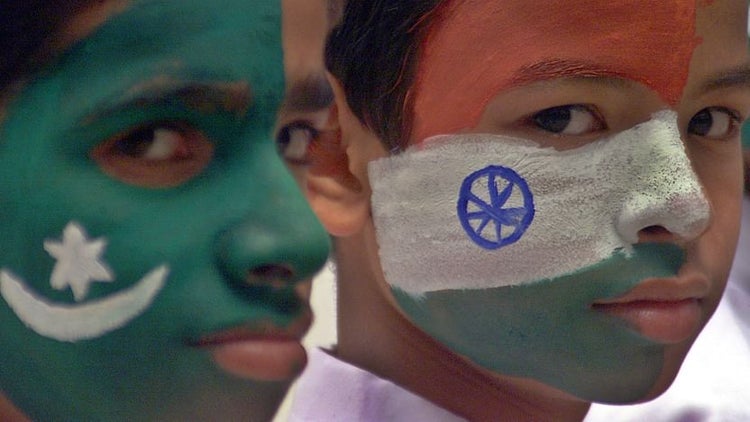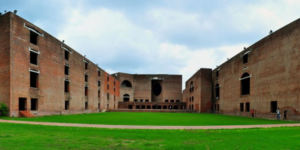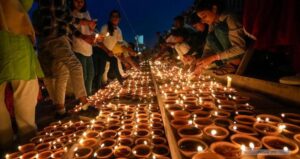Laila Tyabji
Yogi Adityanath, chief minister of a state that has close to 44 million Muslims, over 19% of its population, said recently that Muslims did India no favour by staying on here.
“Go back to Pakistan then,” is the response from the majoritarian Hindu Right every time an Indian Muslim dares criticise, however mildly, some aspect of the India that is our country. This is depressing and also silly. They are totally missing the point. We never went to Pakistan or came from there, so there is no question of our going back. We were born in India, as were our fathers and forefathers, mothers and grandmothers.
The reason we are here and not in Pakistan is because we have chosen to be, even when Pakistan was painfully carved out of our native country. As Indians from both birth and choice, we therefore have a constitutional right to free speech. We are not here on sufferance, but are just as equal as you. That’s what all the noise on the streets is about.
The silly part is that if we did decide to emigrate, Pakistan is probably the last place we would choose. The social, economic and ideological things that upset us here are multiplied there manifold. I personally don’t know of any Indian Muslim who is looking for the stifling strait jacket of an Islamic state, and if they were, they would head to the Middle East, which is at least booming! (By the way, these days, even Pakistanis are leaving Pakistan: 500,000 of them left in 2019 in search for a better life.)
Partition, and its bloody aftermath and displacement, is forever held over our heads. “You got your own country, why are you hanging around here complaining? You are lucky to be here at all” is the (not always hidden) subtext. It is easy to forget that while there was an aggressive demand for a separate Muslim state pre-independence, especially in North India, there was never a plebiscite. Millions of Indian Muslims only wanted to continue living as they and their forefathers had done, feeling (as time would show) as much Bengali as Muslim, as grounded as Christians, Buddhists, Sikhs or Jains were in Kerala, Punjab, Gujarat, Andhra or Assam, just the same as their Hindu neighbours.
Our armed forces, judiciary and civil services were full of Muslims (my father and many other relatives among them) who could have got plum jobs in newly created Pakistan but chose not to accept them. In 1947, my father, then a serving member of the ICS, wrote in a letter to my grandfather:
“You will I am sure not be surprised to hear that I have elected to remain in India (Hindustan) & not to go over to Pakistan. I am absolutely opposed to the Muslim League ideology & mentality & it would have been a gross betrayal of all my ideals & hopes if I threw them over for the tempting posts that they are offering to Muslim officers who propose to get themselves transferred there.”
He added presciently,
“I have little doubt that in India the lot of the Muslims is going to be more difficult & heartbreaking than ever before, especially now that the country has been divided into religious blocks & because of the poison injected by the Muslim League. But I see no reason because of this for flight & an abandonment of the country which is as much ours as anyone else’s.”
This was not always appreciated. My father later told me that one of his abiding sadnesses was how few of his Hindu colleagues understood why he didn’t opt for Pakistan—a country supposedly made for Muslims; in some cases accusing him of robbing them of a job! Despite having their home attacked and looted by a hostile mob, and narrowly escaping being shot himself, it was inconceivable for him, my mother and the rest of our extended family that they exchange the eclectic vibrance of India for the claustrophobia of an Islamic state.
My father was offered the top job in the newly formed Pakistan Foreign Service; he chose to stay on in India in a much more junior post. Even in the early days, when India was proudly secular, loyalty was always slightly suspect. When my maternal uncle Idris Latif became Air Chief Marshal of the Indian Air Force in 1978 many eyebrows were raised, and it was because of the implicit belief of Indira Gandhi (who made him Vice Chief first) and then Morarji Desai (who raised his rank) in him that it happened. It’s difficult to imagine such an appointment being made today, and sadly the proportion of Muslims in senior levels of the armed forces is steadily decreasing.
The reason for Pakistan was obviously the demand by some Indian Muslims for a separate state. I am not sure that those who so vocally and violently demanded it, even Jinnah himself, knew what they were getting. When there was still a generation in Pakistan who remembered a united India, their conversations were always full of sadness, regret and nostalgia. I remember a senior Pakistani diplomat once saying that no one realised it would be such a total separation. They’d imagined that it would be like travelling back and forth from one pre-independence princely state to another; Baroda to Jodhpur, Hyderabad to Lucknow …
For me the creation of Pakistan is one of the saddest, most self-destructive things. I have never travelled there, despite several invitations, as it represents something I am so against—a country created on the basis of religion. I feel the same antipathy to Israel or Saudi Arabia. Religion is such a personal, private thing, something each one of us must follow as our hearts and heads tell us. How can any religion dictate to a government on issues like human and legal rights, gender, policy, even diet and dress?
However wise, all the major faiths were crafted many centuries ago, in response to the mores of their times. How can religion, which is a matter of personal belief, become law? Especially since our holy books, passed down by word of mouth centuries ago, are constantly subject to new individual interpretations and practice, generally by people, whether mullahs, sants or bishops, with their own vested interests.
I, and my father and family members before me, have always supported a Common Civil Code. Practicing what they preached, he and my mother had a registered marriage, 20 years after their original one, in order to leave their estate equally between my brothers and myself, rather than following the 2:1 dictates of Islamic law.
Growing up, I felt sorry for Pakistani Muslims, stuck in a stifling construct of their own making, denied the freedoms and exuberant variety of India. Fancy, to have to eschew ownership of so much marvellous art, architecture, music, dance, literature, landscape, just because it was not part of their divided inheritance. Successive military dictatorships compounded the horror. As a diplomatic daughter, I enjoyed telling young Pakistani diplomats of the joys they were missing. When we were in Japan, Zakir Hussain became president, and it was one more triumphant proof that India’s secularism offered as many opportunities to Muslims as Pakistan.
Over the years, Indian Muslims have always been accused of being “pampered”. People who resent them suggest the Congress in particular gave them some especially favoured status as the minority community, thus somehow discriminating unfavourably against the majority Hindus. I’ve introspected over this, but apart from the Shariat law issue (which hurts Muslims, especially women, more than anyone else) and being given an additional quite unnecessary holiday for the Prophet’s Birthday some years ago, I really don’t see this. Muslims don’t have job reservations, quotas, special scholarships, or other kinds of preferential treatment—in fact it’s increasingly difficult for them to get mainstream jobs, find accommodation, get their children into regular schools.
Successive surveys tell us their standard of living is significantly lower. Muslim representation in parliament is abysmal. And yet we are supposed to be “grateful” when we are successful. As for madrasas being hot beds fostering Islamic fundamentalism, this is far from universal. Those that are should be cracked down upon strongly, but so should other non-Muslim educational and religious institutions which spread inter-community hate and prejudice.
My extended family came to India three centuries ago, in search of religious freedom. Theirs was a breakaway community of Suleimani Bohras, practicing a more liberal form of the Islam prevalent in Yemen then. They settled first in Cambay, then Bombay, Baroda and Hyderabad, and prospered, educating their daughters as well as their sons, never wearing burkhas, joining the ICS but also Gandhi in the salt march and freedom movement, exchanging their satin and chiffon lehenga ordnis for sarees, conceptualising the national emblem. Becoming pilots, engineers, judges, scientists, social workers, scholars, soldiers, artists, architects, accountants, bureaucrats, businessmen, philanthropists, inventors, explorers, designers, diplomats, novelists, naturalists, horse breeders, academics, admen, actors…
A great uncle became an authority on India’s birds, one great grandfather became chief justice of Bombay and third president of the Indian National Congress, another was prime minister of Hyderabad State. A great aunt was one of the founders of the All India Women’s Conference. Another became a Sufi mystic and Krishna devotee. An aunt was the first woman ever to plead a case in the UK Privy Council.
The khandaan found in India a way to practice their religion according to the dictates of their own minds and hearts; they wept over the creation of Pakistan, and responded passionately to India’s freedoms, the breadth and depth of its ancient wisdom and its diverse cultural expressions. India contributed to and gave much to them, but they too gave and contributed to India.
That inclusive India and its multiple interlaced identities still exists. I too am totally addicted to it. “Go to Pakistan…” No, not I.
(Laila Tyabji is the founder member and chairperson of Dastkar, an NGO working for the revival of traditional crafts in India.)




